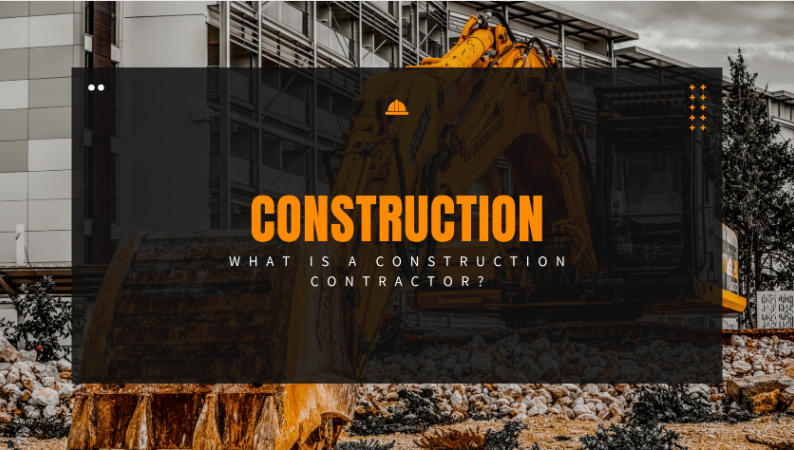A construction contractor manages building projects. They handle tasks from planning to completion. Responsibilities include hiring workers, securing materials, and ensuring legal compliance. Contractors also maintain safety standards on-site.
They work closely with clients and engineers. This collaboration ensures each project meets specifications and stays within budget. Earthwork estimating Georgia often assists by providing cost estimates for excavation and land preparation. Effective contractors oversee timelines and address any issues promptly.
Duties and Responsibilities of a Construction Contractor
Construction contractors are responsible for coordinating and supervising construction activities. They create project plans and schedules. They also manage budgets and resources effectively. This includes hiring skilled workers and procuring high-quality materials.
Additionally, they ensure all work complies with building codes and regulations. They oversee safety protocols to prevent accidents on-site. Contractors maintain open communication with clients and stakeholders, addressing any concerns swiftly. Their role is central to delivering projects on time and within budget.
Types of Construction Contractors: General, Specialized, and More
General contractors oversee entire construction projects from start to finish. They coordinate various tasks such as hiring employees and purchasing materials. Their role involves managing all aspects of the construction process to ensure everything goes smoothly.
Specialized contractors focus on specific areas of a project, such as plumbing, electrical work, or roofing. They possess expertise in their field, providing specialized skills and knowledge. These contractors often work alongside general contractors to complete specific parts of a larger project.
How to Become a Construction Contractor
Becoming a construction contractor requires a blend of education, experience, and certifications. First, acquiring a high school diploma is essential. Many pursue further education in construction management or a related field. Hands-on experience is gained through apprenticeships or working under an established contractor. Certifications and licenses are often required.
Every state has specific licensing requirements; these usually involve passing an exam. Continual learning is vital to stay updated with building codes and regulations. Networking within the construction industry helps build a client base and provides opportunities for mentorship and collaboration. Preparation and dedication are key.
Licenses and Certifications Required for Construction Contractors
A wide range of licenses and certifications is required to operate legally in the construction industry. These credentials depend on the state and the type of work being performed. Typically, they involve passing a licensing exam that tests knowledge of building codes, safety protocols, and legal requirements. Obtaining these licenses is crucial for ensuring compliance with local laws and regulations.
Certifications often focus on specific specialties within the construction field. For example, certifications can be in plumbing, electrical work, or project management. These credentials demonstrate a contractor’s expertise and commitment to quality. They are essential for building trust with clients and enhancing professional reputation.
Skills and Qualifications for a Successful Construction Contractor
Successful construction contractors need a diverse set of skills. Leadership is critical for managing teams and coordinating various aspects of a project. Communication skills are essential to interact effectively with clients, workers, and stakeholders.
Technical knowledge is also crucial. Understanding blueprints, construction methods, and safety protocols ensures high-quality work. Budgeting skills help manage finances and avoid overspending. Problem-solving abilities enable quick responses to unexpected challenges. These skills combined drive the successful completion of construction projects.
Understanding the Construction Contractor’s Role in Project Management
This role involves organizing, planning, and overseeing construction projects from initiation to conclusion. They ensure the project aligns with the client’s specifications, budget, and timeline. This includes creating detailed plans, setting milestones, and coordinating tasks among various teams.
Additionally, this professional must monitor progress and make adjustments as needed. They handle problems and ensure all work complies with safety standards and regulations. Effective communication with clients and stakeholders is crucial. Maintaining documentation and reports keeps everyone informed on the project’s status.
Common Challenges Faced by Construction Contractors
Dealing with common challenges is part of the daily routine. Issues such as fluctuating material costs and labor shortages can disrupt a project’s timeline and budget. Contractors have to adapt quickly to these changes to keep things on track.
Furthermore, handling unexpected site conditions and complying with ever-changing regulations can be difficult. This requires staying updated with industry standards and local laws. Effective problem-solving and continuous learning help in overcoming these hurdles. Adapting to challenges ensures projects are completed successfully.
How to Choose the Right Construction Contractor for Your Project
Selecting the right professional for your construction project starts with thorough research. Look for contractors with strong reputations and positive reviews from previous clients. Ensure they hold the necessary licenses and certifications that your project demands. This helps in verifying their credibility and expertise in the field.
When narrowing down choices, ask for detailed quotes and timelines. Compare these to find the best fit for your budget and schedule. Meet with potential contractors to discuss your vision and expectations. Their communication style and willingness to listen are crucial. Making the right choice ensures your project runs smoothly and successfully.
The Future of Construction Contracting
The construction industry is evolving with the advent of new technologies and methodologies. One key trend is the use of Building Information Modelling (BIM), which enhances project efficiency and collaboration. BIM allows for better visualization, planning, and execution.
Sustainable construction practices are also gaining traction. Focus is on using eco-friendly materials and reducing waste. Robotics and automation are making jobsites safer and more efficient. Furthermore, the use of drones for site inspections and data collection is increasing, helping contractors to make informed decisions.
Conclusion
The construction industry is witnessing significant technological advancements. Building Information Modelling (BIM) is revolutionizing project efficiency. It enhances visualization and improves planning. Sustainable practices are also a priority. These focus on eco-friendly materials and waste reduction.
Robotics and automation are making job sites safer. They also improve efficiency. Drones are being used more frequently for site inspections. They help in data collection and enable informed decision-making. These innovations collectively aim to modernize the field and create a more sustainable future.






More Stories
The Role of a Digital Forensics Specialist
savefrom instagram and SnapInstagram
SnapInstagram and SaveFrom for Downloads